Peace Corps authors: Writing from another country
These writers are all RPCVs whom I wrote about recently for the Association of Writers & Writing Programs website. The eight writers tell how they have used their overseas experiences in their writing careers. JC
Writing From Another Country
Throughout the history of literature in the United States, American writers have looked towards, and gone to, foreign countries to seek inspiration, new experiences, and find work. Henry James in The American (1878) and Samuel Clemens in The Innocents Abroad (1869) were early writers who wrote about their new experience in Europe. Next, we had Ernest Hemingway’s 1926 novel of a half-dozen ex-pats in Paris The Sun Also Rises. Not only novelists, but poets, too, traveled abroad. T.S. Eliot and Robert Penn Warren are two. They went to England to find work and sources of inspiration.
Robert Penn Warren, the only person to have won Pulitzer Prizes for both fiction and poetry, first went to London in 1928 as a Rhodes Scholar. Two years in England gave him a chance to look at his Southern background from a distance, and to earn an advance degree and detach himself from his past. He returned to Europe in 1939, on a Guggenheim Fellowship, and settled in Italy to write a verse drama entitled Proud Flesh that was inspired by Huey Long’s life. Unable to make the play work, he reworked the themes of political ethics and corruption into a novel while witnessing first-hand the fascism of Benito Mussolini’s Italy. That experience in Italy and the rise of Mussolini influenced his novel of the radical populism of Governor Huey P. Long, All the King’s Men.
While many American writers travel to Europe for the experience, others go to live and earn a living. T.S. Eliot first found a job as a teacher and then went to work at Lloyd’s Bank in London. Hemingway began his European period as a foreign correspondent for US and Canadian newspapers.
Today we still have writers seeking incomes and subject matter to write about in West and Eastern Europe, as well as most other parts of the world. These writers are seeking jobs and experiences beyond the familiar here at home.
Here are eight current writers who have found their careers and subjects to write about by living overseas.
Peter Hessler (China 1996-98)
Peter Hessler joined The New Yorker as a staff writer in 2000. From 2000 until 2007, he was the magazine’s correspondent in China. In 2011, Hessler was named a MacArthur Fellow. In the fall of that year, he moved to Cairo, Egypt, where he has covered the ongoing revolution for The New Yorker.
When Hessler graduated from Princeton, he went to England as a Rhodes Scholar. Finishing school, he decided in 1994 to travel home by way of China.
On the Trans-Siberian Railway from Moscow to Beijing, via Mongolia, he observed traders carrying odd products, from speedometers to Mongolia and Russian-speaking clocks to China. He wrote an essay about his trip and sent a blind submission to The New York Times. They published his article. “It was a shock to me,” Peter recalls. “And it was first time I had been published in a newspaper.”
His trip took six months, and Peter continued to write articles for publication. An essay about camping on the Great Wall of China appeared in ThePhiladelphia Inquirer; he then wrote a humorous piece about eating ice cream in Vietnam.
These short essays would be his first small steps into a publishing career. “My initial trip around the world taught me to be resourceful, both as a traveler and as a writer,” says Peter. “Before traveling around the world, I would have never thought of writing something for half a year without any income or promise of publication.”
Roland Merullo (Micronesia 1979-80)
Roland Merullo is the author of twenty books of fiction and nonfiction. Merullo has taught creative writing at Bennington College and Amherst College, and was a writer in residence at Miami Dade College and North Shore Community College. Today he teaches in the low-residency MFA program at Lesley University.
Roland Merullo’s overseas experience began after he earned a master’s degree in Russian Language and Literature from Brown University and went to live for periods of time over the next ten years in the former USSR. He followed this experience by living another year in Italy and a year on an isolated atoll in Micronesia.
These experiences opened his mind to different ways of being. “My work is writing, novels mainly, so naturally all the experiences I had in those places gave me a lot of material to write about. I have one novel set in Micronesia, my first, another set in Russia/USSR, and several books set in Italy.”
Because of his international experience in Russia, and his language skills, Roland was able to find work overseas immediately after college. “I worked on USIA Traveling Cultural Exchange exhibits for three long tours between 1977 and 1990. I don’t recall what it paid; that was long ago, but there was a per diem and not many places to spend the salary so I came home with savings after those tours.”
Not only with money saved to live on, but international experiences that he could write about back home.
Mark Brazaitis (Guatemala 1991-93)
Mark Brazaitis is the author of six novels and winner of the 1998 Iowa Short Fiction Award, the 2012 Richard Sullivan Prize, the 2013 Devil’s Kitchen Reading Award in Prose, and the ABZ Poetry Prize. For the last nine years, Mark has directed the West Virginia Writers’ Workshop at West Virginia University.
“Working overseas, simply put, made my career,” Mark told me. “Six of my seven books couldn’t have been written if I hadn’t lived in Guatemala. Without my overseas experience, I would be writing the kind of safe, predictable, and navel-gazing stories, poems, and novels I loathe.”
By working and living overseas, Mark said, “Helped me see my country, and myself, with new eyes. It made me see the world in a way I never could have if I’d stayed home.”
Two years after his first overseas experience, he returned to Guatemala to work for the US government. “I didn’t become rich from it, but at the end of my contract, I had enough money to spend an extra four months in Guatemala to write. Hemingway would have been proud of me.”
He turned his experiences in Latin America into his first book, a collection of stories entitled The River of Lost Voices, published by the University of Iowa Press. “It’s my personal bestseller,” he says today. “Every year I receive a royalty check—not bad for an 18-year-old book!”
Don Messerschmidt (Nepal 1963-65)
Don Messerschmidt has spent much of his life in the Himalayas (Nepal, Bhutan) as a writer, educator and development consultant. His writing has been recognized by the Nepal Civil Forum and the Prime Minister, and a book on the big dogs of Tibet and the Himalayas earned him a Maxwell Medallion for Excellence from Dog Writers Association of America.
When Don Messerschmidt was growing up in Alaska he began to write nonfiction outdoor adventure stories based on his experiences during summer employment for various natural resource management/conversation agencies. His first publications were in Alaska magazines. Moving to Nepal in the early 1960s, he shifted his focus.
While teaching at the American School in Kathmandu he started writing outdoor adventures stories from the Himalayas that were published in US magazines, based on personal experiences and observations scribbled down in a pocket notebook. Then one day he invited an expat Jesuit priest into his home to talk to him about his long life in Nepal. This invitation and conversation stirred Messerschmidt to write his first biography, Fr. Moran of Kathmandu.
After its publication, he began research on the life of a prominent Nepalese litterateur (writer, painter, and art historian), which was published as Against the Current: The Life of Lain Singh Bangdel. He is now writing a third biography about a Nepalese writer-adventurer whose backstory includes an amazing (and controversial) historical family legacy.
Besides books, Don also began writing for monthly Kathmandu’s ECS Nepal, a magazine featuring Himalayan culture, history, the arts, adventure sports and travel. That led him to being hired as the editor of ECS Nepal Magazine for several years. He also began mentoring young Nepalese writers, for whom English is a second or third language.
Returning to the States he earned a PhD degree in anthropology from the University of Oregon. His dissertation was based in part on research he had conducted in a remote village high in the hills of Nepal. Since then, he has also taught anthropology and international development in several universities both in the United States and Nepal.
Don continues to write for a variety of publications, in Nepal and the US. As he told me, “My writing core today is creative nonfiction. Articles and essays on culture, history and outdoor adventure, and big dogs!”
Don also leads treks and tours in Nepal and Bhutan, while scoping out his next article or book.
Like many other American writers from years past, once having tasted life in another country, he has never fully come home again.
Michael Meyer (China 1995-97)
Michael Meyer is recipient of the Whiting Writers Award, a Guggenheim Fellowship, a National Endowment for the Humanities Public Scholar award, and residencies at the New York Public Library’s Cullman Center for Scholars and Writers and the Rockefeller Foundation’s Bellagio Center in Italy. Author of three nonfiction books, Michael is an associate professor of creative writing at the University of Pittsburgh.
For Michael Meyer, the advantage of a foreign experience, beyond just travel, is that it forces a person to look intensely at how other people live their lives, what they value, what they aspire to, and what they fear. “My time in China,” Michael wrote me, “formed the subject matter of three books of nonfiction, and a tenured professorship back in the United States.”
Michael’s experience in China began when he was hired by a small Beijing international school, which paid $15,000 annually to teach eight subjects to four grades.
While teaching secondary school in the late ’90s, he recalls, “On a manual typewriter, I pecked out a travel story about a hiking trip in southwest China and stuffed the onionskin pages into an envelope, brushed stamps with fish glue and mailed it to The Los Angeles Times. Three weeks later, the reply came: the same onionskin pages, marked up by an editor. The paper ran the next draft with my photographs on two full pages of its travel section, paying $1,500. I felt like I had won the lottery.”
Meyer would go onto write articles for Time, Smithsonian, The New York Times Book Review, The Financial Times, The Wall Street Journal, The Los Angeles Times, Slate, Architectural Record, Chicago Tribune, Iowa Review, and other national publications.
At the time Meyer was living in Dazhalan, one of the oldest neighborhoods of Beijing, and it was the focus of his first book, The Last Days of Old Beijing. He is also the author of In Manchuria and a new memoir, Into the Middle Country:Learning China from the Ground Up, will be published in 2017.
Joshua Berman (Nicaragua 1998-2000)
Joshua Berman is the author of six books about travel and writes a monthly column in The Denver Post. Since 2009, he has worked with the Travel Channel and other networks with their productions in Nicaragua. When not traveling or working in Latin America, he teaches Spanish at Shining Mountain Waldorf School in Boulder, Colorado.
Josh got his first publishing job the year after he graduated from Brown University with a BA in Environmental Studies. Living in Boulder, Colorado, he worked as an intern with a local magazine. Later he was hired as an editorial assistant and then staff writer. In that experience, he quickly learned about query letters and the freelance process, and had several articles published before deciding to join the Peace Corps.
He was sent to Nicaragua where he soon became the editor of the volunteer magazine. Following two years of service, he coauthored the first comprehensive guidebook to Nicaragua with another Peace Corps friend. That publication led him to many more writing assignments, including with The New York Times, National Geographic Traveler, and Yoga Journal.
It also led him to a “side career” as production fixer who assists international television crews filming in Nicaragua. “During my years living in Nicaragua,” Josh says today, “I learned the language, culture, communication, contacts, geography, everything to make sure production runs smoothly.”
Josh has also been able to bend his writing into his own personal life. In 2005, he and his new bride canceled their wedding reception, diverted the money to plane tickets and traveled around the world. Last year he published Crocodile Love: Travel Tales from an Extended Honeymoon. Today, as a parent of three young children, his travel is limited to shorter trips. In spring 2016, he published his fifth title with Avalon Travel Publishing, Moon Colorado Camping: The Complete Guide to Tent and RV Camping, proving that you might keep a traveler stateside, you can’t keep a writer from writing. Plus, when his school schedule allows, Josh still makes it to Nicaragua once or twice a year, working on various shows and documentaries.
Richard Lipez (Ethiopia 1962-64)
Richard Lipez writes the Don Strachey private eye novels under the name Richard Stevenson. He has published sixteen novels. A graduate of Lock Haven State College, he is a former editorial writer at The Berkshire Eagle and today reviews books for The Washington Post. His reporting and essays have appeared in The Boston Globe, The Atlantic, and many other publications. He is the 2011 winner of the Lambda Literary Award for Gay Men’s Mystery.
Richard Lipez, writing as Richard Stevenson, books have found popularity in the gay book audience niche, although they continue to gain mainstream appeal as well. The novels have already been translated into German, French, and Spanish.
Lipez’s novels often concern other gay characters and issues; 1993’s Third Man Out, for example, features the murder of a gay activist and Strachey’s subsequent sleuthing. Four of the Strachey books have also been made into television movies, and Lipez has sold the film options to the rest of his books.
Lipez divides his time between Western Massachusetts and Asia, and his detective novels are set in both locations. His 2010 novel The 38 Million DollarSmile is set in Thailand. Lipez, based on his overseas experience, is able to bring to the plot his knowledge of Thai culture and society are like, effortlessly inserting his knowledge to establish atmosphere of the country, particularly of Bangkok from having lived and worked in Thailand. His love for the region prompts him to suggest to any MFA graduate, “Consider living in Southeast. The region has become more and more important economically. Also, it’s full of mostly nice people and has great food.”
Rob Schmitz (China 1996-98)
Rob Schmitz is the National Public Radio Shanghai Correspondent and the author of the recently published Street of Eternal Happiness: Big City Dreams Along a Shanghai Road. He has won several awards for his reporting on China, including two national Edward R. Murrow awards and an Education Writers Association award. In 2012, he exposed the fabrications in Mike Daisey’s account of Apple’s supply chain on This American Life.
Rob Schmidt first went to China as a Peace Corps Volunteer. It was these two years, he says, that prepared him for a career as a foreign correspondent. “My writing career has certainly benefitted from living overseas. Living in China in the 1990s was an incredible opportunity to experience the country at a time when its future as the world’s second-largest economy was far from certain.”
The experience rewarded him, he also wrote me, “with a perspective that has helped me become a better journalist and author.” His book, Street of Eternal Happiness, focuses on the lives and dreams of everyday people who live along a single street in Shanghai.
The friends he made during those years in Zigong and the changes he saw among his Chinese students, friends, and colleagues during that time made him realize how quickly Chinese society was changing even back then, and witnessing those changes over the years has been an ongoing passion of mine.”
What often happens to American writers living overseas is that they turn their homeward. Saul Bellow, according to his first biographer, James Atlas, got his focus for The Adventures of Augie March while living in Paris on a Guggenheim fellowship. Bellow found the spectacle of water flooding down a Parisian street to be the inspiration for the “cascade of prose” that gushed after his famous opening line: “I am an American, Chicago born—Chicago, that somber city—and go at things as I have taught myself, free-style, and will make the record in my own way….”
To help you on your way to write in another country, or to remember your past, here are a few resources to seek out if you decide it is time for you to travel and live abroad.
John Coyne is the author of 25 books of fiction and nonfiction, including the bestseller, The Legacy, which was also a successful film starring Sam Elliott. His short stories have been included in several “best of” anthologies. His most recent book is Long Ago and Far Away, a love story set in Africa, Europe, and the United States that spans 40 years. A collection of his short stories The Devil You Know and Other Tales of Terror is due in late 2017 from Cemetery Dance Publications.
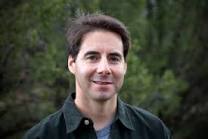
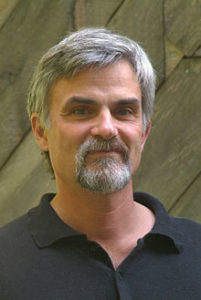


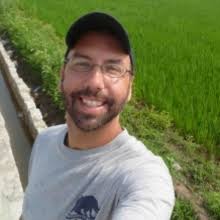
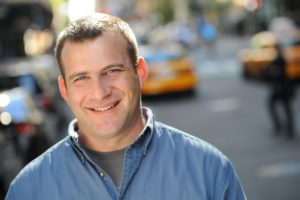
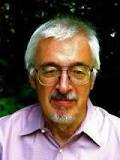
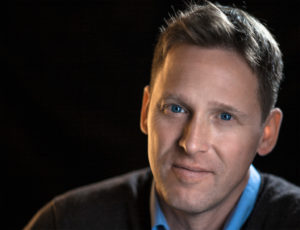
Very interesting but all male? Really? No females are doing this?
I search for some Sue without success. There is one woman I would have like to have interviewed for the piece, but I couldn’t find her. I did write about her in other articles. Here is some of what I wrote:
Our Writer in Paris
Closer to the Peace Corps, and closer to our decade, there is Black Girl in Paris by Shay Youngblood, who lived in Paris before becoming a Volunteer in Dominica. Of Paris, Shay writes, “it seemed to be the kind of place that, if you were a writer or artist, there was something in the air that could transform you.”
Shay Youngblood, however, was not following Ernest Hemingway. She was following another literary lion, James Baldwin, who left Greenwich Village in 1948 because of American racism. Baldwin would spend more than a decade in Paris where he wrote his first novel, Go Tell It On the Mountain.
In Black Girl in Paris, Youngblood informs us that upon arriving in the Paris of 1924 in his early twenties, Langston Hughes had only $7 in his pocket; that an equally youthful James Baldwin followed two decades later with $40.
Youngblood’s protagonist came with $140 hidden between her sock and the sole of her shoe. “They dared to make a way when there was none and I want to be just like them,” she writes. “This is the place where it happened. Where it will happen again.”
With these writers as her touchstone, Shay doesn’t look back in anger, but expands on the expatriate theme to write about a young black woman who has fled the deep South in search of a childhood dream of a color-blind, liberal atmosphere in which a woman can become a writer. And in doing so, she pays her homage, not to Hemingway or Fitzgerald, but to her black expatriates: Langston Hughes, Richard Wright, and James Baldwin.